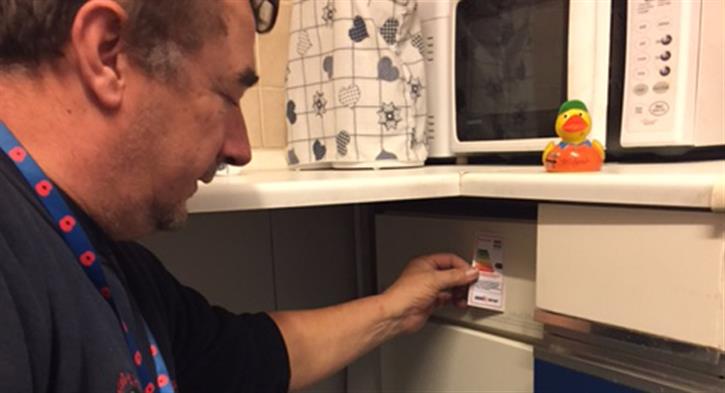

Plumb Center has welcomed the retrospective boiler labelling scheme launched by the Heating & Hotwater Industry Council (HHIC) together with the boiler manufacturers to raise awareness of boiler efficiency with consumers.
The scheme encourages gas engineers to issue an energy efficiency label – known as a ‘Retro Boiler' label – on all non-condensing boilers with a permanent pilot light, when visiting homes to undertake servicing or maintenance work.
The initiative aims to increase consumer awareness of boiler efficiency with the hope that this will result in boilers rated E or below being replaced with more efficient models. Where a boiler replacement is not possible or practical for the customer, the label can also be used to stimulate a wider conversation around other means of achieving energy efficiency gains, such as controls, pumps, filtration and flushing.
Labels are available free-of-charge to installers via all major boiler manufacturers.
Stewart Clements, director at HHIC said: “The scheme was incredibly well received by registered gas engineers attending the PHEX exhibition, as it offers them an easy and clear way to introduce boiler efficiency to their customers. Energy labels currently appear on a multitude of electrical products including washing machines and fridges so consumers are used to seeing them and this new label aims to build on this knowledge.”
Gary Wright, heating engineer at AC Wilgar said: “On issuing my first ‘Retro Boiler’ label the customer had no clue that boilers had various efficiencies. This isn’t uncommon. Many people I visit are often unaware of how much they could save by upgrading their boiler. These labels are a great way to start the energy efficiency conversation with customers.”
However, not all installers seem convinced, with one tweeting:
@Alonlineni: “Government thinks this is a good idea? Why would we waste our time sticking labels on boilers?”
Richard Harvey, category director – heating and plumbing, at Plumb Center is urging installers to find out the facts before passing judgement on the new scheme.
“Broadly speaking, we are in favour of any credible initiative that contributes to raising general awareness of the operating cost and environmental burden of old boilers,” he said.
“The retro label provides an easy way for installers to start a conversation with a home owner about his or her aging boiler. Consumers are now quite used to seeing energy labels on the products they buy so this is something they can easily relate to and its message is clear to understand. As a completely voluntary scheme, it’s up to each installer to decide if it’s something they can use, but if it provokes a constructive conversation then I’d argue its use has been a worthwhile exercise.
“I’d also encourage installers find out the facts about this scheme for themselves. It’s inevitable there will be sceptics, but it should be remembered this is voluntary, there’s no paperwork involved for those choosing to use it, and there’s no cost either. Plus, contrary to popular perception, the labels do not have to be stuck to the customer’s boiler. So I would urge installers to request a wedge of labels from their preferred manufacturer and see if it can help them explain to a customer why it might be time to replace their aging boiler.”
The retro label scheme – which has been endorsed by Baroness Neville-Rolfe, Minister of State at the Department for Business, Energy & Industrial Strategy (BEIS) – was launched by the HHIC at the PHEX Chelsea on 16 November.
Image: Gary Wright issues a 'Retro Boiler' label
If you'd like to keep up-to-date with the latest developments in the heating and plumbing industry, why not subscribe to our weekly newsletters? Just click the button below and you can ensure all the latest industry news and new product information lands in your inbox every week.